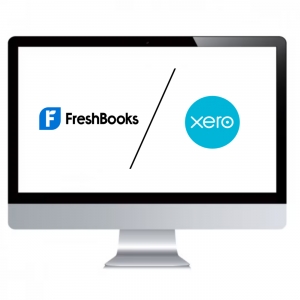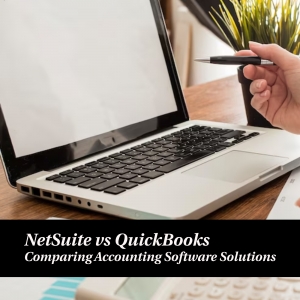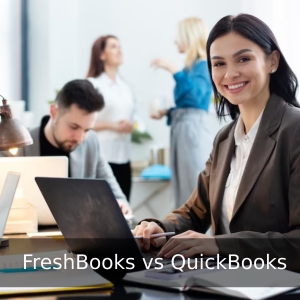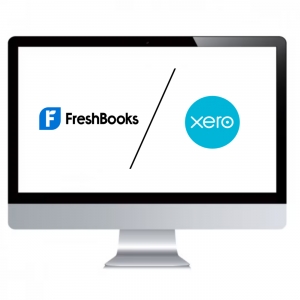When it comes to managing your business's finances, you want a reliable and efficient accounting software. Two of the most popular options on the market are QuickBooks and Wave. Both provide excellent features for small business owners, but which one is right for you? In this article, we'll take an in-depth look at QuickBooks vs Wave 2023: Features, Pricing, and More to help you make an informed decision. Whether you're a new entrepreneur or a seasoned professional looking for a change, read on to find out which software best suits your needs!
QuickBooks vs Wave: Key Differences
When it comes to accounting software, QuickBooks and Wave are two of the most popular options available on the market. While they may seem similar at first glance, there are a few key differences between QuickBooks vs Wave that can influence which one you choose for your business.
One of the biggest differences between QuickBooks and Wave is their target audience. QuickBooks is designed primarily for small and mid-sized businesses with more complex accounting needs, while Wave caters more towards freelancers, sole proprietors, and smaller businesses without many employees.
Another important difference is pricing. QuickBooks offers several different plans at varying price points based on features needed, whereas Wave's core features are free to use with additional paid add-ons available as needed.
In terms of functionality, QuickBooks offers more advanced inventory management tools than Wave does. Additionally, QuickBooks allows for double-entry bookkeeping while this feature isn't included in the basic version of Wave.
When choosing between these two programs it's important to evaluate your specific business needs carefully before making a decision.
QuickBooks vs Wave: Features
QuickBooks and Wave offer several features that make them stand out from each other. QuickBooks is a more comprehensive software, which offers invoicing, inventory management, payroll processing, time tracking, project management tools and more. It also comes with advanced reporting features that allow users to create customizable reports and track their finances in real-time.
On the other hand, Wave is a simpler software that focuses on basic accounting needs such as invoicing, expense tracking and payment processing. It doesn't have all of the bells and whistles of QuickBooks but it's perfect for small businesses or freelancers who don't need extensive functionality.
One feature where both platforms excel are online payments. Both QuickBooks and Wave allow you to accept credit cards or bank transfers directly through their platform at competitive rates.
Another key difference between these two accounting softwares is scalability. While Quickbooks can handle large-scale businesses with complex financial needs; Wave works best for smaller operations.
When comparing the features of QuickBooks vs Wave it's important to consider your business size and specific financial requirements before making a decision about which platform will suit your needs best.
QuickBooks vs Wave: Pricing
Pricing is always an essential factor when choosing a software solution. QuickBooks offers four pricing plans, starting with the Simple Start Plan at $25 per month and going up to the Advanced Plan at $180 per month. The higher-priced plans offer additional features such as inventory management and project profitability tracking.
On the other hand, Wave is free to use for accounting and invoicing services, making it highly attractive for small businesses on a budget. Nevertheless, some of their more advanced features come with fees attached. For example, payroll service starts at $20 per month plus $6 per employee.
It's worth noting that while Wave may seem like an obvious choice due to its free price point compared to QuickBooks' paid options; this isn't necessarily true in all cases. Depending on your business needs and goals, one of QuickBooks' higher-priced plans might be more cost-effective than paying extra fees for specific features or integrations in Wave.
Both solutions offer competitive pricing structures that cater well to different types of businesses depending on their size and requirements.
QuickBooks vs Wave: Pros and Cons
When it comes to comparing QuickBooks and Wave, there are several pros and cons to consider. Let's take a closer look at each.
QuickBooks has been in the market for over 30 years, making it a well-established platform that offers robust features. One of its biggest advantages is its wide range of reporting options that can help small businesses stay on top of their finances. In addition, QuickBooks integrates with hundreds of third-party apps for added functionality.
On the other hand, Wave offers a completely free accounting solution that includes invoicing, expense tracking, and receipt scanning tools. This makes it an attractive option for sole proprietors or very small businesses who want to keep costs low but still need basic bookkeeping functions.
However, one downside to Wave is its limited customer support options. While they do offer email support and an online knowledge base, phone support is only available during certain hours on weekdays.
In terms of pricing models, both platforms have their own unique approach. QuickBooks charges based on tiers depending on the features you need while Wave remains completely free (with optional paid add-ons).
Deciding between these two platforms ultimately depends on your business needs and budget constraints.
QuickBooks vs Wave: Ease of Use
When it comes to ease of use, both QuickBooks and Wave offer user-friendly interfaces. However, there are some differences worth noting.
QuickBooks has a more robust feature set, which can make navigating the software more complex for new users. On the other hand, Wave’s interface is simpler and easier to navigate because it lacks some of the features that QuickBooks offers.
One thing to note about QuickBooks is that there are multiple versions available at different price points. The more affordable options may not have all of the features you need, so be sure to choose a plan that fits your business needs.
Wave’s simplicity makes it an excellent choice for small businesses or individuals who don’t require advanced accounting features. It also offers an intuitive mobile app for on-the-go accounting tasks.
Ultimately, whether you find QuickBooks or Wave easier to use will depend on your own preferences and experience with accounting software. Try out each option before making a decision!
QuickBooks vs Wave: Customer Support
When it comes to using accounting software, having access to reliable customer support is crucial. QuickBooks and Wave both offer a range of customer support options, but there are some key differences between the two.
QuickBooks offers 24/7 phone and chat support for all paid plans, along with email support and an online community forum. The company also provides a knowledge base full of articles and tutorials that can help users troubleshoot common issues on their own.
Wave offers email-based support for all users, as well as live chat support during certain hours for paid users. Additionally, Wave has an extensive knowledge base with helpful articles and video tutorials available to all users.
While QuickBooks may have more comprehensive customer service options overall, Wave's resources are still quite robust considering that it is a free software. Plus, the fact that they provide live chat support for paying customers means that you can get quick answers if needed.
Ultimately, when it comes to customer service capabilities in this QuickBooks vs Wave matchup, both platforms have something valuable to offer depending on your needs.
Conclusion
After analyzing QuickBooks and Wave, it is clear that both software programs have their own strengths and weaknesses. QuickBooks may be more expensive but offers a wider range of features, making it the better option for larger businesses with complex accounting needs. On the other hand, Wave's free pricing model and user-friendly interface make it an attractive choice for small businesses just starting out.
Ultimately, choosing between QuickBooks vs Wave comes down to your specific business needs and budget. It is recommended to carefully evaluate each program before making a decision.
Regardless of which software you choose, using either QuickBooks or Wave will help streamline your accounting processes and provide valuable insights into your business finances. By staying organized and on top of your financials, you can focus on growing your business with confidence knowing that your accounting system is reliable and efficient.





